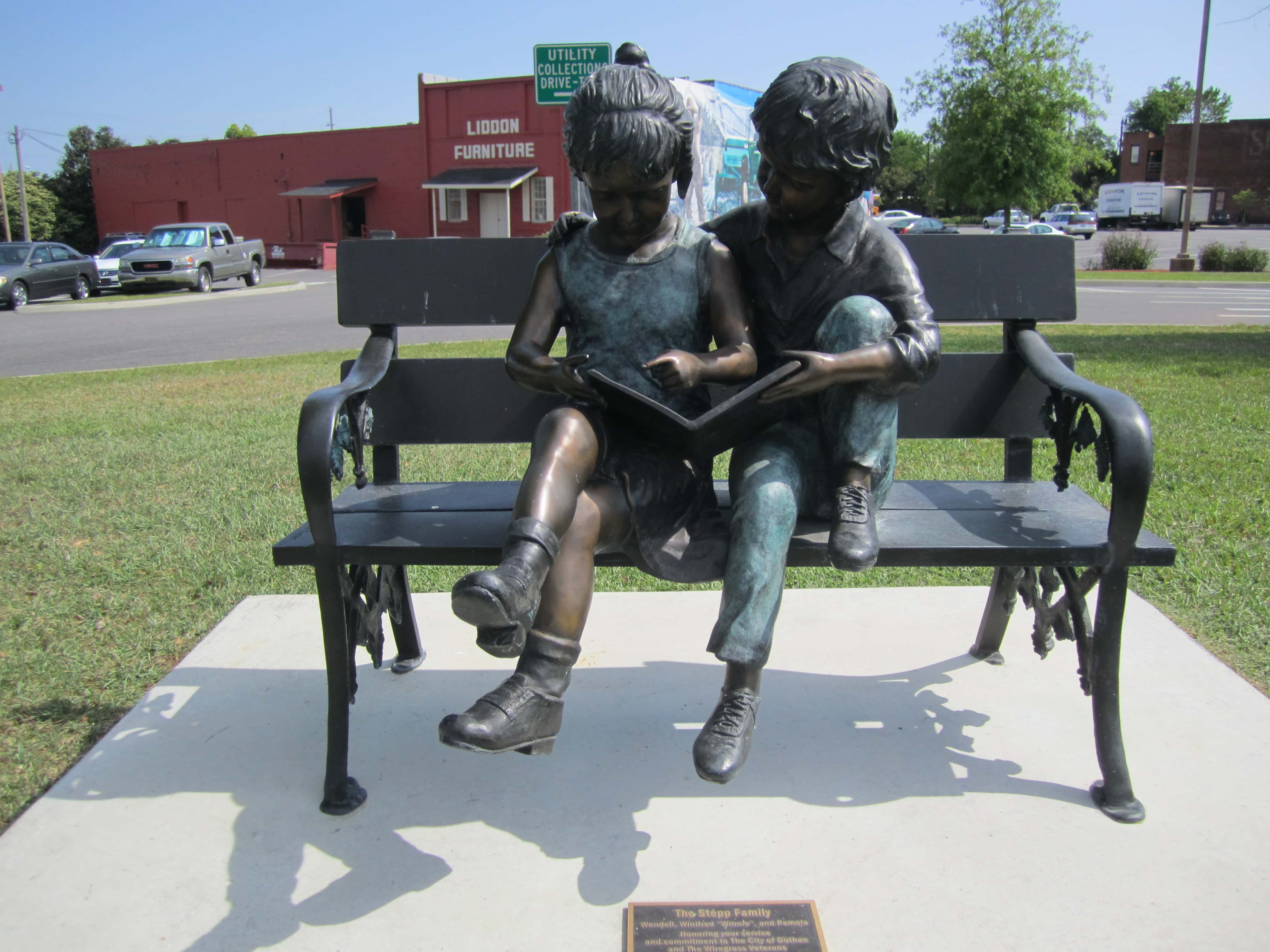Joy of Learning
It has been one of the most fun experiences of my life, yet at times it has also been very frustrating. It has been building this website and writing blogs. I knew nothing about either until my son-in-law started his website and it sounded like something I would like to try, too. Yes, this is the same son-in-law who took me for the adventure I mentioned in my blog, “The Walking Stick.” As I was trying to design it, I had some ideas of how I wanted it to look. I bought a pile of books (yes, they still make those). I studied things like HTML and CSS. My wife threatened to get me a pen protector. Finally, I gave up on those efforts and went to a webpage designer.
I took my ideas, drawings of the pages, my logo, and my checkbook to the designer. He was really nice and when he showed me the pages he set up I was shocked how he took my idea and expanded on them. I believe he started me off with 6-7 pages and taught me how to make the other pages. Believe it or not, this website currently has 54 different pages. Of course, there is a page for each President, which makes up 43 of those.
Placing pictures on the different pages is also a challenge. I have had to learn to manipulate pictures so they would fit into confined spaces. I also gathered the information and arranging it in an orderly fashion and a host of other things. I’m still far from being a geek, but I can usually look on a page and see a mistake and know where to go to fix it. I have a long way to go, but step by step I’m learning more each day and I really do enjoy doing it.
For as long as I can remember I have had a joy for learning. In fact, once I learn all I can about a subject, I will usually get bored and move on to something else. I believe education is one of the keys to reaching your full potential. The love of education gives you the drive to be better.
Education has always been a tricky subject in our history. Some very educated people can come across as stuffy and stuck up. On the flip side, some uneducated people can be looked down upon. Our Presidents have offered us a mixed bag of educational experiences.
Early in our history, his father was, among other things, a diplomat. In one of his father’s assignments he took him along. He was given, literally, some of the finest education in the world. Among the languages he could speak or translate were: Dutch, French, German, Italian, Latin, Greek, and of course, English. With his knowledge of Dutch, one President would appoint him Resident Minister to Holland, despite the fact his father was part of this President’s administration and that President despised nepotism. Another President would appoint him as American minister plenipotentiary to Russia and he eventually became a good friend to Czar Alexander I.
Throughout our history six men, who served as Secretary of State, have become President. Early in our history the Secretary of State wasn’t just the man who handled foreign affairs. The Secretary of State was also the person who led, what in modern times would be, the Secret Service, the CIA, the Department of Interior, the Department of Commerce, the Department of Agriculture, the Department of Transportation, as well as many other agencies like the Indian Affairs. It his day, the Secretary of State’s job was considered the stepping stone to the Presidency. He, like three others before him, became Secretary of State and then stepped into the Presidency. With his education and knowledge of several languages, he seemed like the perfect choice.
When you’re building a structure it is always good to have a set of plans. If you have a really good set of blueprints you will be able to know the brand, the type of material and the location of all the rooms. A good architect uses good materials and designs adequate supports to ensure the structure can handle the environment it is in. A good builder can not only determine the quantity of material he needs from those plans, but he will also follow the designs the architect has drawn to ensure the structure is not only safe, but also serves the purpose it is intended. You might say the builder gets an education every time he finishes a structure. Although, while he is building the structure, he might not understand the architect’s intent, when the structure is complete he comes to realize the purpose of some of the things he was asked to do.
This Bible character must have been very handy with tools. He worked for a very tough architect who would notice every misplaced detail. The Bible lists some very vague instructions the architect gave him, but I bet they were a little more detailed than were mentioned in the Bible. The building had to house many residents, some of which would rather eat the other one alive than associate with them. When the project was done and the mission complete, he would understand exactly why it was designed the way it was.
He was nearly the same age as George Washington was when Washington entered the Presidency. Yet, with his experience and education he was probably one of the smartest men to ever become President. He knew his education was one of the main reasons he had made it this far. He also knew that one of the best ways to get ahead in life was through a good education. With that gusto he plowed ahead with ideas like the “lighthouses to the sky,” as he dreamed his astronomical observatories would be called. He believed the federal government should be at the forefront of funding for such programs. Remember this was an age before publicly funded education.
Harlow Giles Unger, in his book John Quincy Adams, describes the situation as, “In what was clearly a clash of cultures – indeed, a clash of generations – John Quincy saw man in general, and the American man in particular, as having unlimited talents, restrained only by lack of educational opportunities that he believed the federal government could and should provide.” What was John Quincy up against? Unger continues, “The average American man yearned not to attend school or college but to own a plot of land – to work its soil, to plant and harvest enough to feed himself and his family, and to sell any surplus at market.” Ridiculed, rejected and accused of pushing aristocratic ideas, like education, on the general public, John Quincy Adams would lose his reelection to the man he defeated just four years before. When his Alma Mater, Harvard, presented his rival, Andrew Jackson, with an honorary degree, he would state, “I would not be present to witness her disgrace in presenting her highest literary honors upon a barbarian who could not write a sentence of grammar and hardly could spell his own name.”
Noah was out in the middle of nowhere when God asked him to build a floating ark. Everyone one laughed at him and said, “Why are you building such a big boat out here in the middle of nowhere?” Others might have added, “Noah, just because we have a lot of sand out here in the desert, that doesn’t make it a beach.” Though Noah probably didn’t understand everything at the time, he followed the great Architect’s, God’s, plans. Once the rain stopped and the flood started to recede, Noah finally landed the ark and got all he animals off the boat. He probably turned around one last time to look at the giant boat. He finally understood why the great Architect was so particular about all the details. He was probably also glad he listened to him and didn’t take any shortcuts.
John Quincy Adams was way ahead of his time with his thoughts of education. During his time, Americans saw very little advantage in furthering one’s education. Our own history has taught us that when we have expanded our minds our own fortunes change the most.
Today, I worry that we have lost that zeal to improve our education. Larger class sizes, budget cutbacks, colleges closing or offering fewer classes, and less parent involvement are just a few of the major setbacks our education systems are facing. We want to group all our kids together so we have an inclusive environment instead of lifting similar level kids together to help each group reach its fullest potential. We want to come up with standardized tests so all our kids are “equally smart.” We forget each child is not going to be a scientist, engineer, or scholar, but that doesn’t mean they aren’t smart. I’m sure there have been many times we have not wondered about the scholastic levels of our soldiers, policemen, plumbers, or other occupations. Education is about reaching our potentials, not about how much we know.
Prayer: Dear Mighty Father, Whether I’m building a website or a boat, please let me always seek to reach my full potential. Please give me the tools, resources, and teachers to help me realize what that potential is. Thanks for covering my path with opportunities to use that potential. Amen.



